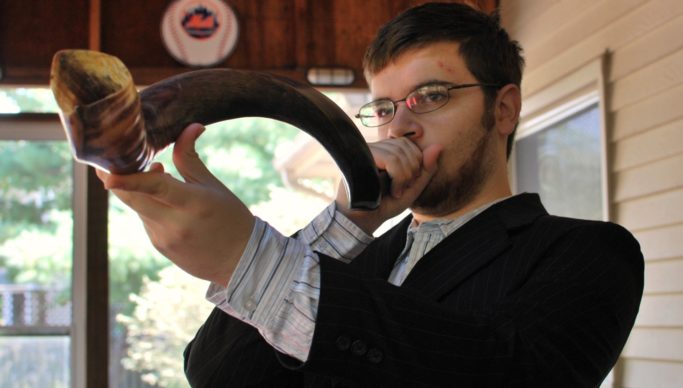
Jewish Leaders Introduce ‘High Holidays’ Security Vigilance Amid Rising Antisemitism
- By Geoffrey Peters --
- 23 Sep 2023 --
With Rosh Hashanah and Yom Kippur—the most significant celebrations on the Hebrew calendar—Jewish religious leaders and security experts geared up to address potential security threats that affect their community.
At sundown on September 15, Rosh Hashanah began the 10-day Jewish High Holidays, culminating in Yom Kippur. It is a time when large crowds attend synagogues, and rabbis and security professionals have recently hosted a string of webinars aimed at helping protect them.
“The High Holidays are about renewal—about trying to build a better world,” the Associated Press quoted Rabbi Noah Farkas, president of the Jewish Federation of Greater Los Angeles, as saying. “But we can’t do that without a security regimen that makes people comfortable to go to synagogue.”
Security measures at Jewish institutions throughout the U.S. have been on the rise for over a decade. The efforts have been substantially escalated in the aftermath of a mass shooting on October 27, 2018, when a gunman killed 11 worshippers at the Tree of Life synagogue in Pittsburgh. It was the most deadly act of antisemitic violence in U.S. history, and the perpetrator, Robert Bowers, was sentenced to death last August after a protracted trial.
In 2021, the Jewish Federations of North America initiated one of the most significant security campaigns since the Pittsburgh massacre: The organization launched a $130 million effort aimed at providing state-of-the-art communal security programs to every Jewish community in the U.S. and Canada, covering 146 federations, 50 partner organizations, and more than 300 independent communities, not to mention various partners across the public, private, nonprofit and academic fields.
By August, a total of 103 Jewish federations across both countries had implemented programs aligned with the standards established by the Secure Community Network, a nonprofit safety initiative for the Jewish community created in 2004 by the Jewish Federations of North America and the Conference of Presidents of Major American Jewish Organizations.
Eric Fingerhut, president and CEO of the Jewish Federations of North America, expressed a wish he said is shared by many in the Jewish community—that Rosh Hashanah be a time of joyful celebration, free from the necessity of security preparations and concerns about antisemitic threats.
“But we quickly move to the recognition that you can’t have those joyful things unless you feel safe and secure,” he told the AP. Although people have grown accustomed to it, it’s doubtful anyone has entirely grasped the enduring consequences, he remarked. “It’s not going to go away, like a hurricane or tornado,” he added. “This is going to be a permanent, ongoing feature as long as we can see into the future.”


















